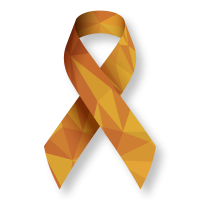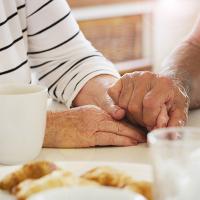Receiving proper support as a bladder cancer patient can be critical to improving your overall well-being and quality of life during treatment. While family and friends can help you navigate living with cancer, it can be beneficial to find a wider support from other patients and caregivers, healthcare professionals, and advocates who are dealing with similar circumstances.
This article talks about some of the ways you can find support groups and build a support network as you navigate living with bladder cancer.
What is a Support Group?
Support groups might form a valuable part of your support system. A support system is a network of people you can rely on for help. For many bladder cancer patients, building a reliable support system can be essential in helping to manage emotional, practical, and psychological needs.
From navigating personal stresses to health and financial issues, support groups can provide valuable resources and emotional support which can help cancer patients and their caregivers cope before, during, and after treatment. Cancer support groups might be made up of patients, survivors, or other people who are going through or have been through similar experiences to yourself.
The Benefits of a Cancer Support Group
Receiving a bladder cancer diagnosis can be tough. You may experience a whole range of difficult feelings, and need to cope with significant changes in your life. While your loved want to help, they may find it hard to know exactly how you feel, or how best to support you. This can sometimes feel very lonely.
Support groups are usually made up of people who have been through similar experiences, and are able to understand exactly what you're going through. This can help you feel less isolated in your experience.
A cancer support network or group can provide a space to talk about and work through challenges and feelings you are experiencing, and get information and tips on how to cope with common issues. Support groups can also give caregivers a chance to learn more about how to better support those with bladder cancer, and each other.
Here are some other ways that being a part of a bladder cancer support group may help you:
- Share your experience: Sharing your own experiences, personal setbacks, and accomplishments with others can be incredibly valuable in helping you to process your experiences. You can share feelings with your bladder cancer support group that you may not want to share with family.
- Help with feelings of loneliness: Talking to other people in a similar situation can help you feel like part of a community and realize that you're not alone in your situation. Understanding that other people are in the same boat can also help you remember that all of your feelings and reactions are normal.
- Get advice: Support groups can provide guidance and assistance. These groups allow space for you to discuss practical information about your treatment and receive constructive and helpful advice. You can learn what to expect during bladder cancer treatment, how to manage specific side effects, and the best ways to communicate with loved ones and health care providers, for example.
- Receive encouragement: Your support group can be a source of encouragement when you need it most, and help you feel more hopeful about your current situation. It can help you find the courage and confidence to deal with challenges that come as you move through bladder cancer diagnosis, treatment, and recovery.
- Help with stress and anxiety: Speaking openly about your experiences and hearing other people discuss theirs can help you to make real connections and build fulfilling relationships. Meaningful interaction like this can help to improve your resilience and reduce stress associated with living with cancer.
How to Find and Build Your Bladder Cancer Support Network
It can take time and energy to build your support network or establish a support group. It’s important to focus on ways that work best for you. Here are several strategies you can use to help you find a bladder cancer support group, and build up your network:
1. Talk to Family and Friends
Family and friends can be a good place to begin building your support network. Practicing asking for and accepting help from those you know well and can trust can help you feel more confident in branching out to look for other forms of support.
When you receive a cancer diagnosis, people close to you will naturally want to help, but don’t always know how. It can be difficult for others to understand what you are going through. You can help them support you by thinking what sort of support you might need, and asking them if they can help.
If you don’t feel able to ask for emotional support, you can always try asking for help with practical or other tasks instead. Keeping a list of things you need help with, such as running errands, cleaning your home, preparing meals, childcare, and performing other daily activities, can help loved ones continue to support you. They may also be able to arrange for transportation, organize medical visits, and speak with health care providers on your behalf.
It is important you make sure you get your emotional support needs met too. Building in additional support and connecting with other survivors and support groups can provide a valuable source of this type of support.1
2. Ask Your Doctor for Suggestions
Your physician or healthcare team can be a good source of information on the type of support available to you in your area. They should be able to introduce you to specialized bladder cancer resources, including support groups.
Other expert healthcare providers such as psychologists, dietitians, counselors, home health service technicians, or other specialists like oncology nurse navigators or social workers you come into contact with may also have a wealth of knowledge gained from helping other patients in similar circumstances, and may know of more specialized support available. It’s always worth asking if they can help connect you with a support group.
3. Connect with Other Cancer Patients
Reaching out to other bladder cancer patients and survivors can be a critical step toward finding your own community and system of support during treatment. Regularly engaging with individuals with similar and shared experience can help you feel understood and supported.
You might first meet other bladder cancer patients to talk to at your clinic, during treatment, or via patient-focused charities and organizations.2
Through these connections, other bladder cancer patients may then be able to direct you to further networks of patients and survivors, increasing your community involvement.
4. Find an In-Person Cancer Support Group
In-person or face-to-face bladder cancer support groups can provide enormous support for cancer patients, children, family members, and caregivers looking for solidarity. Many in- person bladder cancer support groups focus on family concerns like role changes, new responsibilities, shifting relationships, financial stresses, and more. Some groups will include both cancer survivors and their family members or caregivers.
Many cancer patient organizations and charities offer in-person support group meetings across the country. When choosing an in-person support group, some points to consider are the size of the group, who typically attends, the length of the meetings, how often the group meets, and who leads the meetings, be it a professional or a cancer survivor.2
Some support groups may focus on participants sharing feelings or offering tips to address other members' questions and concerns, so it can help to inquire about the typical format of the meetings as a whole, and consider whether the format is something you feel comfortable with, and would benefit from.
5. Search Online
Online cancer support groups can be an important addition to your cancer support network. They are also a good way of accessing support if you are unable to make it to in- person meetings, e.g. if health complications arise, or there are few meetings in the area where you live.
Some people also find it easier to share their experiences and feelings with other people in a virtual setting, instead of face-to-face. If you're hesitant to join a support group for any reason, you may find that online options help ease you into the idea of it.
Online cancer support groups also offer a huge amount of flexibility in format. For example, patients can use online message boards, blogs, or discussion groups to post messages to share personal or general information and questions.3
Some groups can gather together using video software or chat rooms in real-time, just like an in-person meeting. Other groups prefer to connect remotely via social media, or text.
Platforms like Facebook and Twitter are a good place to start searching for free online cancer support groups. These groups may sometimes be private and require approval by the group's organizer. There are also email lists that can distribute messages from group members to an entire group of people to help them stay up to date.
It is important to find the right online source of support for you. This might mean taking time to make sure that the group are friendly, supportive, and respectful, and that you feel safe to engage. It’s also always a good idea to check with your physician about any information you are unsure of.
6. Attend Fundraising and Other Events
Many national cancer organizations and charities offer support and education to people with bladder cancer and their families. These organizations often have connections to formal bladder cancer support groups that will allow you to connect with other individuals in treatment.
Or if a patient support group is not for you, you can also feel part of the community by supporting these organizations in other ways. Through fundraising for cancer research, or attending educational seminars and awareness functions, for example.
Getting involved in events related to bladder cancer in this way can be an excellent way to increase interaction and action, while also giving you a sense of belonging.
If you found this post useful, we invite you to browse our blog for more articles written for cancer patients.










